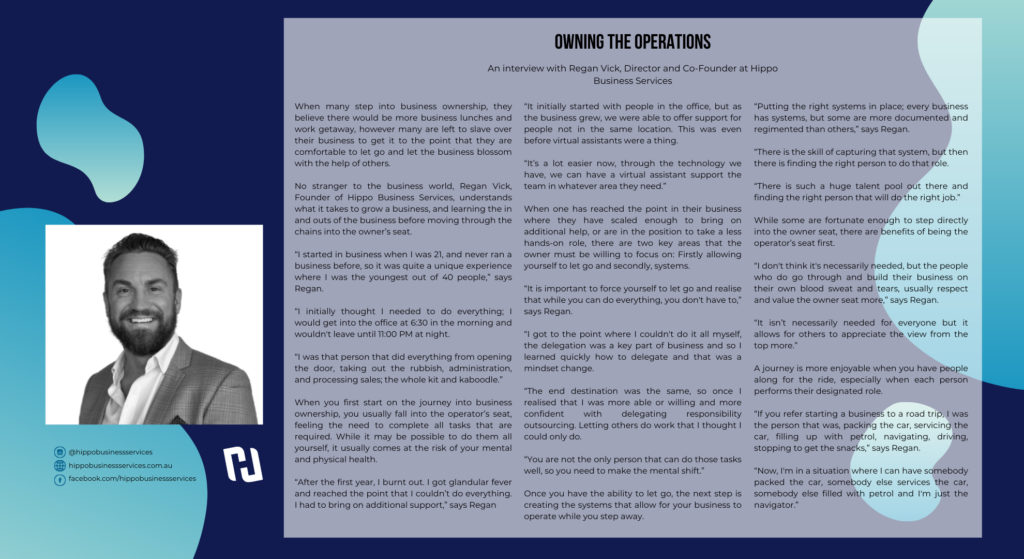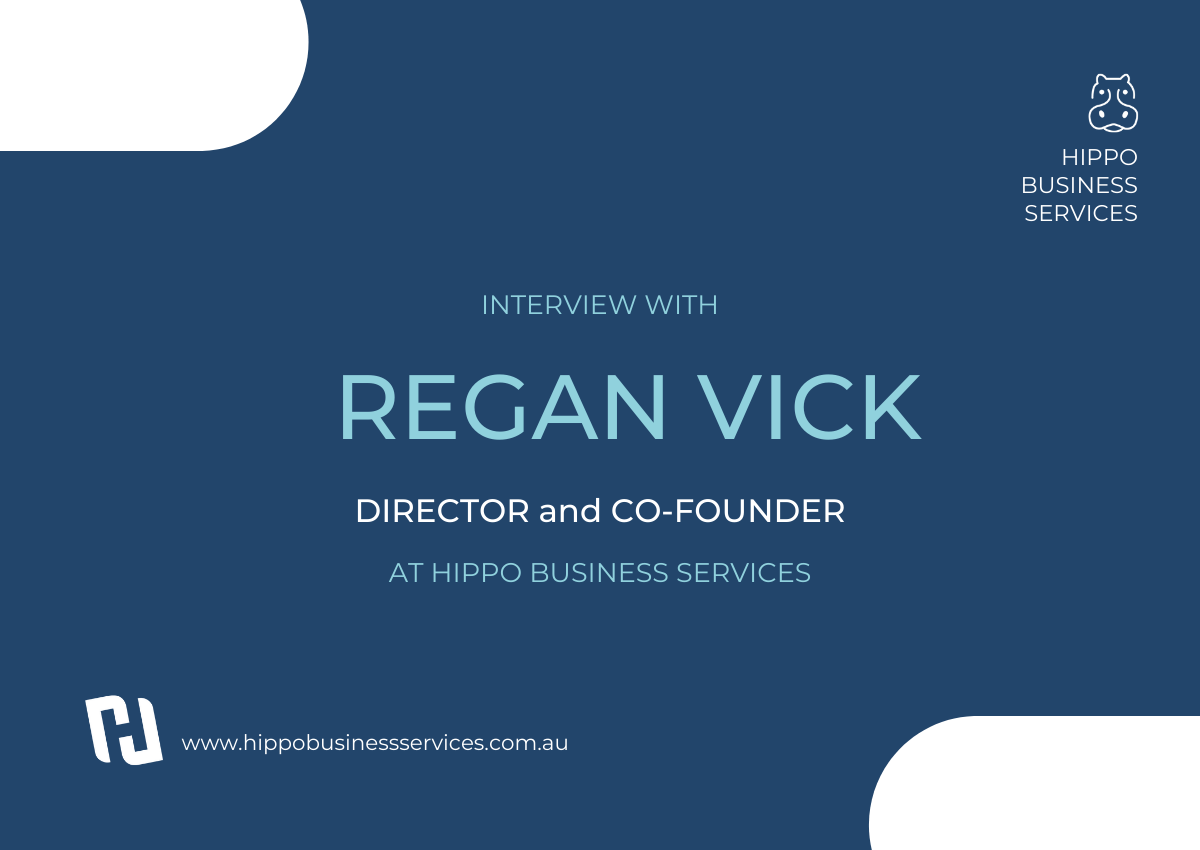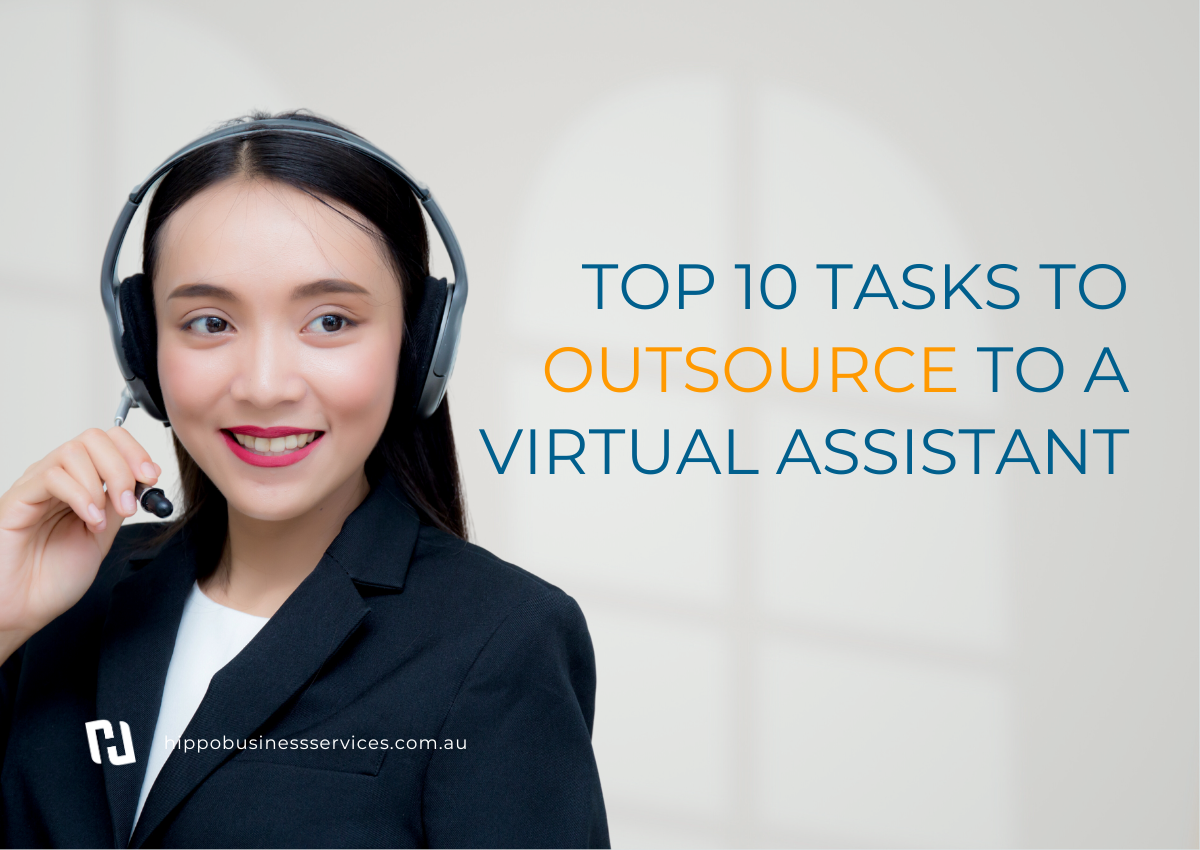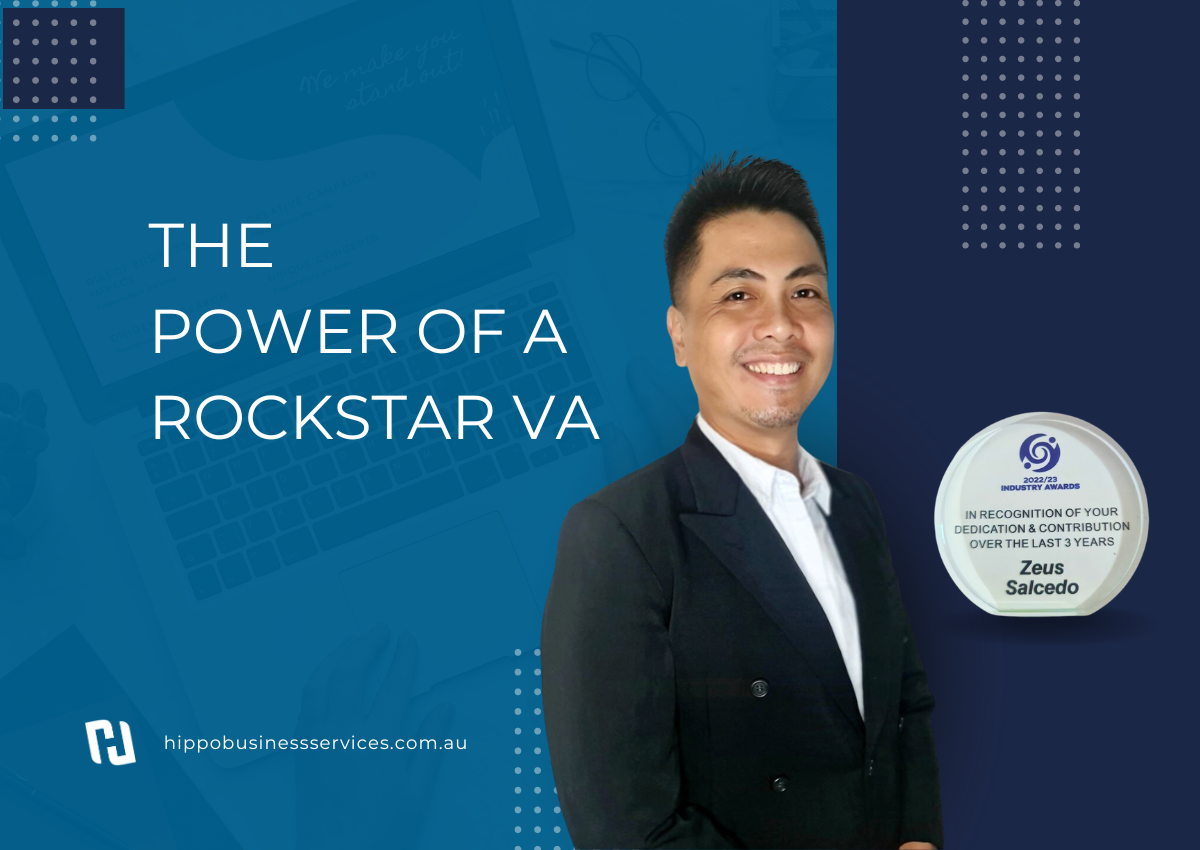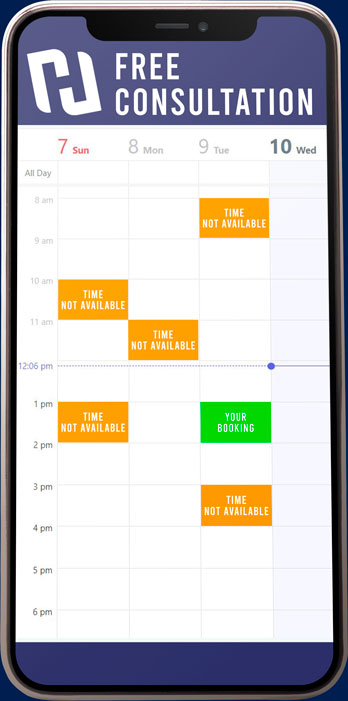When many step into business ownership, they believe there would be more business lunches and work getaway, however many are left to slave over their business to get it to the point which they are comfortable to let go and let the business blossom with the help of others.
No stranger to the business world, Regan Vick, Founder of Hippo Business Services, understands what it takes to grow a business, and learns the in and outs of the business before moving through the chains into the owner’s seat.
“I started in business when I was 21, and never ran a business before, so it was quite a unique experience where I was the youngest out of 40 people,” says Regan.
“Initially, I thought I needed to do everything; I would get into the office at 6:30 in the morning and wouldn’t leave until 11:00 PM at night.
“I was that person that did everything from opening the door, taking out the rubbish, administration, and processing sales; the whole kit and kaboodle.”
When you first start on the journey into business ownership, you usually fall into the operator’s seat, feeling the need to complete all tasks that are required. While it may be possible to do them all yourself, it usually comes at the risk of your mental and physical health.
“After the first year, I burnt out. I got glandular fever and reached the point that I couldn’t do everything. I had to bring on additional support,” says Regan
“It initially started with people in the office, but as the business grew, we were able to offer support for people not in the same location. This was even before virtual assistants were a thing.
“It’s a lot easier now, through the technology we have, we can have a virtual assistant support the team in whatever area they need.”
When one has reached the point in their business where they have scaled enough to bring on additional help, or are in the position to take a less hands-on role, there are two key areas that the owner must be willing to focus on: Firstly allowing yourself to let go and secondly, systems.
“It is important to force yourself to let go and realise that while you can do everything, you don’t have to,” says Regan.
“I got to the point where I couldn’t do it all myself, the delegation was a key part of business and so I learned quickly how to delegate and that was a mindset change.
“The end destination was the same, so once I realised that I was more able or willing and more confident with delegating responsibility outsourcing. Letting others do work that I thought I could only do.
“You are not the only person that can do those tasks well, so you need to make the mental shift.”
Once you have the ability to let go, the next step is creating the systems that allow for your business to operate while you step away.
“Putting the right systems in place; every business has systems, but some are more documented and regimented than others,” says Regan.
“There is the skill of capturing that system, but then there is finding the right person to do that role.
“There is such a huge talent pool out there and finding the right person that will do the right job.”
While some are fortunate enough to step directly into the owner seat, there are benefits of being the operator’s seat first.
“I don’t think it’s necessarily needed, but the people who do go through and build their business on their own blood sweat and tears, usually respect and value the owner seat more,” says Regan.
“It isn’t necessarily needed for everyone but it allows for others to appreciate the view from the top more.”
A journey is more enjoyable when you have people along for the ride, especially when each person performs their designated role.
“If you refer starting a business to a road trip, I was the person that was, packing the car, servicing the car, filling up with petrol, navigating, driving, stopping to get the snacks,” says Regan.
“Now, I’m in a situation where I can have somebody packed the car, somebody else services the car, somebody else filled with petrol and I’m just the navigator.”
